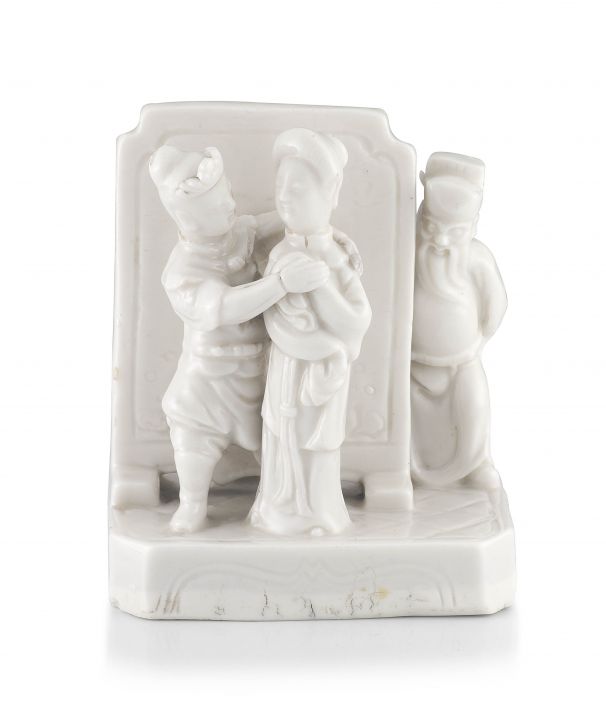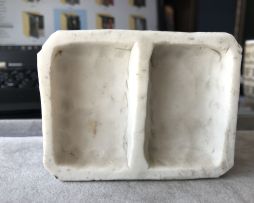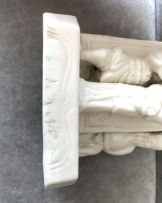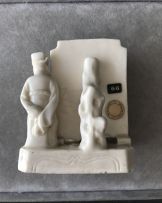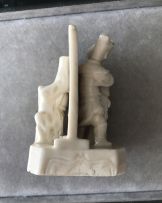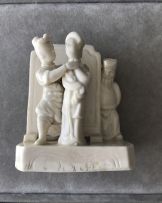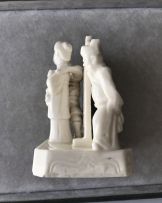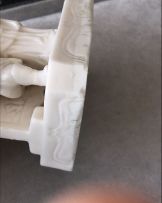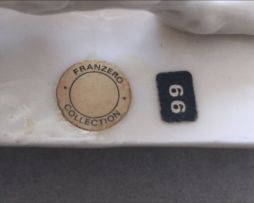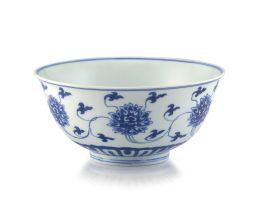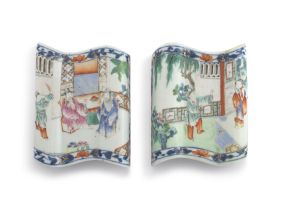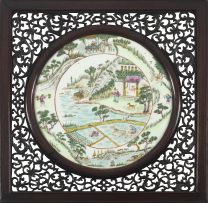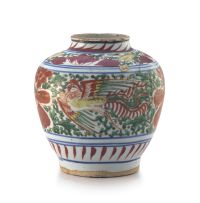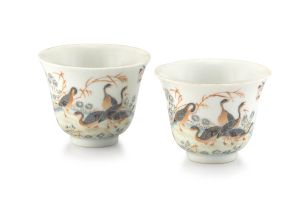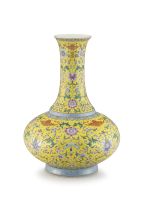A Chinese blanc-de-chine figural group, Kangxi period, 1662-1722
Chinese and Japanese Ceramics and Works of Art
About this Item
Provenance
The collection of Dr C. M. Franzero, Bluett & Sons Ltd., 48 Davies Street, London, W1Y-1LD, 21 November 1974, No. 66
Literature
Bluett & Sons Ltd (1974), Chinese Porcelain of the 16th to 18th centuries from the collection of Dr C. M. Franzero, exhibition catalogue 14 - 29 November 1974, London, Bluett & Sons LTD., foreword:
"Dr C. M. Franzero is an Italian who settled in London some 50 years ago, and since then has built up an international reputation as a journalist and author. [...] Dr Franzero's first contact with Chinese porcelain was during his visit to China as a budding writer in the far away years of 1921 - 22. [...] However, it was not until 1932 that he was in a position to start buying Chinese porcelain at first modestly in the Caledonian Market. But his serious collecting dates from the war years when his articles in the Daily Telegraph, afterwards published in book form, brought him some affluence. He came to know the dealers and recalls with pleasure the hours he spent with Edgar and Leonard Bluett, 'that charming man' Peter Sparks, 'old Hancock' and H. R. N. Norton, who, Dr Franzero tells us, used to say his initials stood for 'His Royal Nothingness'. He says they all seemed to enjoy treating him like a pupil and from them he learnt how to distinguish real quality. It was at this time he acquired his taste for wares enamelled in three colours on biscuit and Fukien blanc-de-Chine [...] Dr Franzero emphasizes that his self-imposed rule in collecting has been to be guided solely by taste and to accept a degree of damage if a piece is of sufficient quality and beauty."
